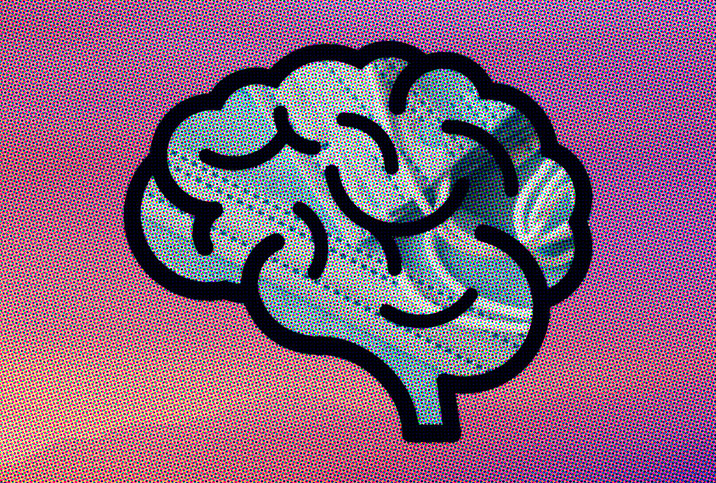COVID-19 and ED: The Evidence for a Connection Keeps Getting Firmer

While the evidence showing that male fertility could be lowered as a result of a COVID-19 infection grows—the virus impacts sperm health and production—that's not the only way the virus can affect males. Getting infected could also increase the risk for erectile dysfunction (ED). Here's how the evidence is shaping up a firmer picture of the role COVID might play in your love life.
What we know
A surprising number of studies show evidence COVID could lead to erectile dysfunction, and doctors are taking note.
"There have been multiple studies demonstrating a decline in erectile function in patients previously diagnosed with COVID-19," said Joshua Gonzalez, M.D., a urologist and sexual medicine specialist in Los Angeles. "One Italian study found the risk of developing erectile dysfunction (ED) is nearly six times higher for people who have had COVID-19. What's even more concerning is that the men in many of these studies are younger than the age groups we typically associate with ED."
Amy Pearlman, M.D., a clinical assistant professor of urology and the director of the Men's Health Program at the University of Iowa Hospitals & Clinics, shared that one of the most recent literature reviews, published in the journal Sexual Medicine Review, indicated evidence that COVID-19 could lead to ED was "compelling." This is because it impacts ED in multiple ways: through the infection itself, through how COVID affects access and treatment for ED, and how COVID impacts mental health.
Gonzalez also pointed out that the Italian study—cheekily titled "Mask Up to Keep It Up"—specifically controlled for other common risk factors associated with ED, including age, body-mass index (BMI) and psychological health scores. In other words, ED was associated with COVID-19 infection independent of these other risk factors.
In his own experience and alongside other healthcare professionals who specialize in sexual medicine, Gonzalez laid out some of the symptoms they are seeing in their patients post-COVID:
- A decrease in spontaneous and nocturnal erections ("morning wood")
- Increased difficulty achieving a fully rigid erection
- Trouble maintaining an erection
- Diminished response to ED treatments that were once effective (for patients with a history of ED pre-COVID)
Theories as to why a COVID-19 infection could impact erectile function abound. Pearlman discussed some outlined in the Journal of Endocrinology Investigation, which listed indirect ways the virus could play a role:
- The virus can lead to heart injury, which may result in decreased blood supply to the genitals.
- Medications given to men to control blood pressure can be associated with ED.
- The virus can lead to nervous system problems, which can also impact erectile function.
- Some inflammatory cytokines that increase in people with COVID-19 can be associated with worsening sexual dysfunction.
- Testicular damage may also result from infection, because the ACE2 gene is a receptor of SARS-CoV-2, and high levels of ACE2 are expressed in the testes. Damage to testicular tissue can lead to impaired testosterone production, which can be associated with ED.
- Weight gain resulting from the pandemic can also worsen diabetes, hypertension and cardiovascular disease, which are all associated with ED.
"The penis is a barometer of overall health," Pearlman pointed out. "When we are sick—for whatever reason—our sexual health is going to be affected, as the genitals don't need to work when our bodies are going through difficult physical or psychological situations (this is a normal and expected response to sickness)."
Pearlman also added vaccinated people don't get as sick compared to unvaccinated people.
"As a result, we would expect those who are vaccinated to have less risk of developing sexual/erectile dysfunction."
Last, but not least: There is no evidence the COVID vaccine itself leads to ED, so the best way to reduce your risk of ED and preserve your fertility is to talk to your doctor about getting vaccinated or boosted.
What we don't know
It's also important to acknowledge what we don't know about the impact of COVID—there's still a lot we don't know about how the virus impacts the body long-term.
"People should understand that we are still learning every day about the long-term effects of COVID," Gonzalez said. "Many symptoms associated with COVID relate to its effect on the cardiovascular system—specifically the endothelial lining of our blood vessels—which is why some patients have developed cardiovascular events, such as blood clots and stroke, after COVID infection. Because erections require good, healthy blood flow and ED often occurs from cardiovascular dysfunction, it would make sense that it could have detrimental effects on erections."
And while the vaccines may not prevent infection completely, they do dramatically reduce the risk of infection and mitigate the effects of the virus, he added.
Is it worth the risk?
COVID-19 has a potential impact on male sperm production and sexual function, and evidence is clear that males are more likely to get infected with the virus, have more severe symptoms and suffer from a higher death rate.
"[People] should be concerned about the impact of COVID on their sexual health, independent of their reproductive health. Even if they do not want to have kids, who doesn't want to have sex? Is it worth risking impotence?" Gonzalez noted, adding ED can have a detrimental effect on one's self-esteem and romantic/sexual relationships. "As someone who treats ED every day, I would recommend people do whatever they can to protect themselves from COVID so they don't have to deal with the potential sexual repercussions."
Case in point? A simple shot may help prevent a whole host of problems, from not being able to get it up to really not being able to get up—at all.
"We are still learning a lot about this disease," Gonzalez admitted. "The results of all the studies so far linking COVID and ED need further data to support their findings. But at this point, all signs point to COVID increasing your risk of ED."


















